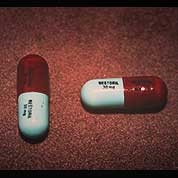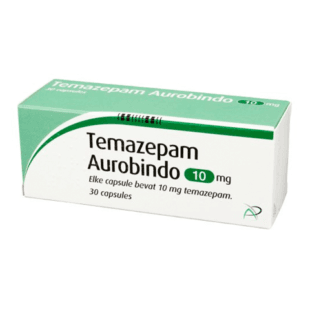Effective Sleep Problems Medications for a Restful Night's Rest
Sleep problems presents a substantial difficulty for several people, usually causing a decrease in overall health. A range of drugs, both prescription and over-the-counter, exist to address this prevalent problem, varying from conventional sedative-hypnotics to a lot more contemporary options. The efficiency and safety of these choices can vary considerably among individuals. Understanding the nuances of each type, along with the possible threats involved, is necessary for making notified choices about therapy. This expedition will certainly reveal the most ideal options and factors to consider to make certain an absolutely restorative night's sleep.
Kinds Of Insomnia Medications
Various kinds of medications are offered to resolve sleep problems, each made to target particular elements of sleep disturbance. Mainly, insomnia drugs can be categorized right into two primary teams: sedative-hypnotics and non-sedative choices.
Sedative-hypnotics, which consist of benzodiazepines and non-benzodiazepine rest aids, are typically suggested to induce rest. Benzodiazepines, such as diazepam and lorazepam, job by enhancing the impacts of the neurotransmitter gamma-aminobutyric acid (GABA), resulting in boosted sedation. Non-benzodiazepine drugs, like zolpidem and eszopiclone, are created to supply a quicker start of rest with possibly less side results and a reduced threat of dependence contrasted to typical benzodiazepines.
On the various other hand, non-sedative alternatives include drugs like melatonin receptor agonists, which simulate the all-natural hormonal agent melatonin, and particular antidepressants that have sedative buildings. These options may be better for individuals with coexisting state of mind conditions or those who favor to stay clear of standard sleep medicines.

Usual Prescription Choices
A number of typical prescription options are readily available for treating sleeplessness, each with distinctive devices and effects. They boost the results of the neurotransmitter gamma-aminobutyric acid (GABA), advertising leisure and rest onset.
Non-benzodiazepine hypnotics, consisting of zolpidem and eszopiclone, are preferred options. These medicines target certain receptors in the mind, resulting in quicker beginning of sleep with a minimized danger of dependency contrasted to benzodiazepines. They might still create side results such as wooziness or cognitive problems.
Melatonin receptor agonists, such as ramelteon, offer another choice by mimicking the action of melatonin, a hormonal agent that regulates sleep-wake cycles. This course of medication is non-habit developing and is especially useful for people with circadian rhythm conditions.
Finally, certain antidepressants, consisting of trazodone and amitriptyline, might be prescribed off-label for sleeping disorders as a result of their sedative impacts. Each of these options need to be talked about with a health care carrier to identify the most appropriate therapy based on individual demands and possible adverse effects.
Over-the-Counter Solutions
Over-the-counter (OTC) solutions for insomnia are often sought by people looking for choices to prescription medications. These treatments typically have components that advertise relaxation and aid rest start.
One more preferred OTC option is melatonin, a hormone naturally generated by the body that controls the sleep-wake cycle. Melatonin supplements can be specifically efficient for those experiencing jet lag or shift occupational sleep disruptions. They are usually well-tolerated, although the optimal dosage can differ among people.
Organic supplements, such as valerian origin and chamomile, are also available in the OTC market. These natural items are believed to have soothing effects, though clinical proof sustaining their efficiency is combined. It is crucial for customers to seek advice from with health care experts prior to using any type of OTC sleep problems drug to make sure safety and security and avoid interactions with other medicines. Inevitably, while OTC solutions can be useful, they ought to be made use of thoughtfully and as part of a comprehensive strategy to rest health and wellness.
Natural Remedies and Alternatives
The search of restful sleep has actually led several individuals to discover all-natural treatments and choices that may provide relief from insomnia. Various options, often stemmed from holistic strategies and conventional techniques, have actually acquired popularity amongst those seeking non-pharmaceutical interventions.
Natural supplements such as valerian passionflower, origin, and chamomile are frequently made use of for their soothing residential or commercial properties. Valerian root, in certain, has been studied for its potential to improve rest top quality and decrease the time it requires to drop off to sleep. Chamomile, typically taken in as a tea, is renowned for its mild sedative impacts, making it a comforting choice for evening relaxation.
Furthermore, way of life alterations can substantially affect sleep quality. Practices such as yoga and reflection promote leisure and lower anxiety, potentially relieving sleeplessness symptoms. Aromatherapy, making use of essential oils like lavender and bergamot, is one more avenue that some individuals discover advantageous in developing a soothing sleep atmosphere.
While these all-natural remedies may provide alleviation, Learn More it is necessary to approach them with understanding and consult a health care professional, especially published here when combining with other therapies. Each individual's reaction might vary, emphasizing the importance of tailored methods for achieving corrective rest.
Tips for Safe Use
When taking into consideration the use of sleeplessness medications, it is vital to prioritize safety and security to reduce prospective dangers and improve efficiency. Get in touch with a health care expert to discuss your certain sleep problems, existing medical conditions, and any type of other medicines you may be taking. This can help identify the most appropriate medication and dosage for your needs.
Second of all, stick strictly to the recommended dose and timing. Overuse or abuse can bring about dependence or damaging adverse effects. It is also advisable to prevent mixing sleeplessness medicines with alcohol or leisure medications, as this can considerably raise the threat of hazardous communications.

Final Thought


Sedative-hypnotics, which include benzodiazepines and non-benzodiazepine sleep aids, are typically prescribed to generate sleep. Non-benzodiazepine drugs, like zolpidem and eszopiclone, are made to offer a quicker beginning of rest with possibly less side impacts and a reduced threat of dependancy contrasted to conventional benzodiazepines.
These medications i thought about this target certain receptors in the brain, leading to quicker start of rest with a decreased risk of dependence compared to benzodiazepines. Seek advice from a healthcare expert to discuss your details rest problems, existing medical conditions, and any kind of various other drugs you may be taking.In addition, monitor your sleep patterns and side effects carefully.